Top 25 Legal Pages For Your WordPress Website
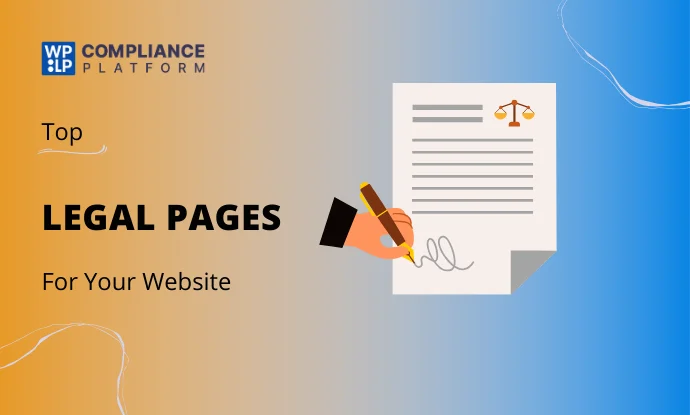
Publishing legal documents is essential for any website. While it is a legal requirement in many countries, it helps you to maintain good terms with your customers. A pre-designed legal template helps you to create your own document based on your needs and publish it on your own. WP Legal Pages is a WordPress plugin offering more than 25 legal templates you can use to publish legal documents on your site. In this article, we will give you a detailed guide on how to use the plugin and the list of templates it comes with.
Importance of legal documents for websites.
Following are the reasons why you must have legal documents online –
- A privacy policy and certain disclaimers are legal requirements. The documents you should put on your site depend on your business type.
- It is important to gain the trust of your users. If everything is well-defined, people will return to you again, and a long-lasting relationship will develop.
- It protects your site contents from infringement if you have a copyright.
- The terms and conditions pages protect the online communities you create on your websitheyssetit sets guidelines for members.
- You deal with many third-party services from time to time. For example, Google Analytics, Twitter, and Facebook apps require you to publish legal documents such as a privacy policy.
25 Types of Legal Pages for Your Website
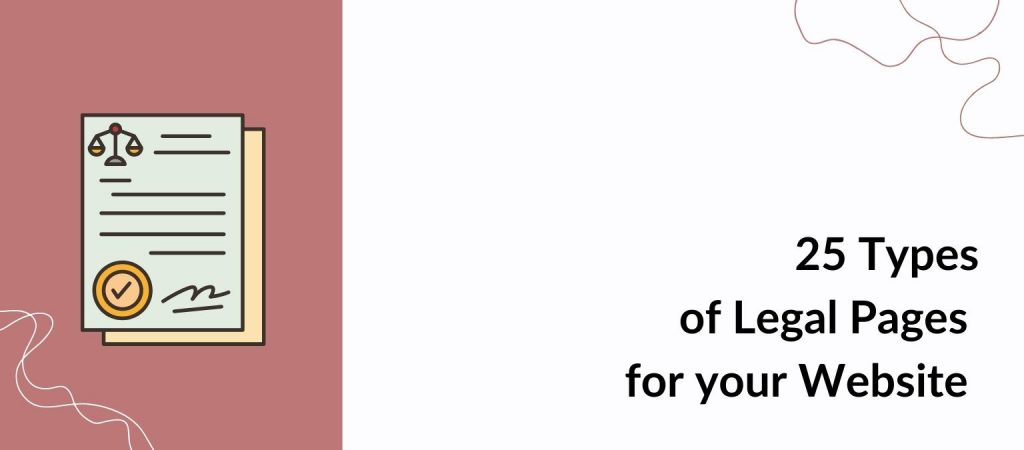
The legal pages you should have on your website depend upon the type of business you run and the country you live in. While some legal pages are standard for most websites, others might require some different or additional legal pages. For example, eCommerce websites must have a return and refund policy page. It might not be required for other business websites. So, it’s essential to understand the different types of legal pages available and the kind of business website you own.
- GDPR Privacy Policy: Use this policy when your website collects personal information and has visitors from the EU.
- GDPR Cookie Policy: Use when you have visitors from the EU & are using cookies on your website.
- Terms of Service: Define SLAs and terms of service for your site.
- Terms & Conditions: Limit liabilities, force agreement, and define the Terms & Conditions.
- CCPA (California Consumers Privacy Act): If you collect personal data and have California-based users.
- Amazon Affiliate Disclosure: To comply with Amazon’s affiliate program requirements (if you promote products listed on Amazon)
- Linking Policy: Use this policy to inform the users about the terms and conditions for linking to your website and disclaimers for external linking.
- Blog Comments Policy: Use when you have comments enabled on your blog.
- Affiliate Agreement: A legal contract between affiliates promoting your products/services.
- Affiliate Marketing Disclosures: Include this when you use affiliate links or promote a product for which you’ve been compensated.
- External Links Policy: Use this policy to inform the users about the terms and conditions for linking to your website and disclaimers for external linking.
- DoubleClick DART Cookie Policy: Use this policy if you’re an advertising publisher and use DART cookies.
- Returns & Refunds: If you want to protect your eCommerce business.
- Digital Goods Refunds: If you sell digital products on your website.
- Anti-Spam Policy (CASL Compliant): If you are an individual/business that uses email for advertising or promoting something.
- Privacy Policy for Facebook Apps: Use this policy if you use Facebook functionality.
- Earnings Disclaimer: Limit your legal liability if your website promotes strategies and programs to help users make money.
- Medical Disclaimers: To imply that the information on your website is not intended to be a substitute for professional medical advice, diagnosis, or treatment.
- General Disclaimers: To limit your legal liability and keep your users informed.
- FTC Testimonials Disclosure: Use this if your website displays user reviews or endorsements.
- California Privacy Rights Policy: If you have California-based users and want to give them clarity on the disclosure of personal information.
- DMCA Policy: To limit your liability to copyright infringement claims.
- Children’s Online Privacy Policy (COPPA): If you collect personal information on your website from children below 13 years of age.
- Newsletter Subscription Policy: If you are using an email newsletter service and collect personal information like email ID from your subscribers
- FTC Disclosure Statement: If you have a website and affiliate partners, you should declare your website’s compliance with the Federal Trade Commission policies
4 Must-Have Website Legal Documents For Website
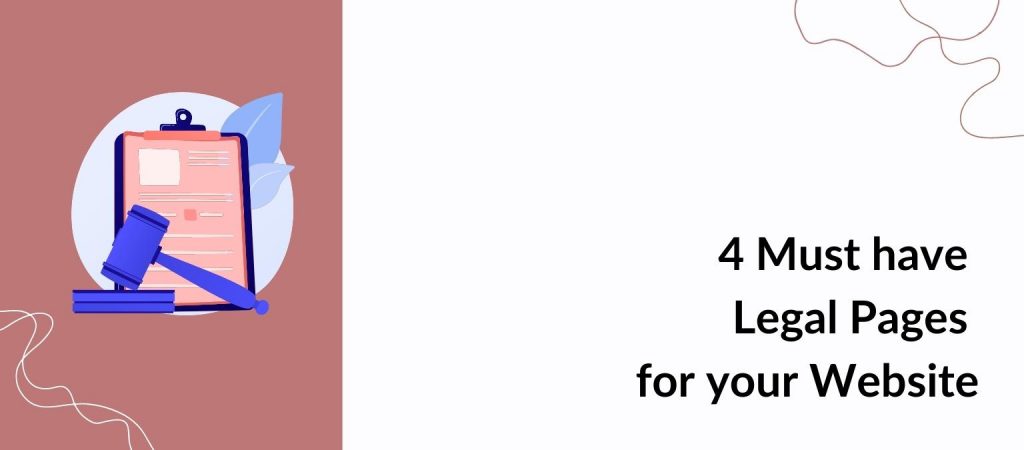
Legal pages strengthen your bond with your users. They make you transparent in their eyes, which saves you from unwanted legal issues.
What legal pages a website should have depends largely on its type. If it is an eCommerce site, the requirements will be completely different from those of a personal blog. The requirements also vary with the area of operation. Every country has its own cyber laws. So, you must first check your purpose and who you deal with.
Following are the major legal pages that every website needs to have for its protection.
1. Privacy Policy– Website Legal Documents
A privacy policy is a legal agreement between two parties. It discloses how one party can access the other party’s data. It is a document that carries a set of terms and conditions that you will follow while using your users’ personal data. In the context of a website, it discloses how the operators of the site will collect, store, and utilize the personal data of its visitors. Nowadays, the privacy policy is mandatory for any website. The policy to be followed depends on the area of operation. For example, if a website deals with the people of California, it must comply with CCPA. Similarly, if you deal with EU citizens, you must follow GDPR.
2. Terms & Conditions– Blog Legal Pages
Terms and conditions, as the name suggests, are a set of rules that you will follow for different purposes. They dictate what is allowed on your website and what is not. You need to define everything clearly in detail. There should not be any scope for ambiguity. Generally, the terms and conditions of a website contain rules about posting content, commenting, participating in a discussion or forum, etc. In the case of an eCommerce site, it acts as a legal contract between you and your users.
3. Refund Policy- Website Legal Documents
A refund policy dictates the terms and conditions of any refunds the seller offers the buyers after they return any product. It talks in detail about the terms and conditions of return and refund. Generally, a refund policy contains the following information –
- How many days does a customer have to return a product
- How will he get the refund, whether credit or replacement?
- Whether you offer refunds for digital products or any in-app purchase
- Who will pay for the shipping to return the product
4. Cookie Policy– Blog Legal Pages
A cookie policy is a declaration to visitors about the active cookies on your website. It generally discusses what user data the cookies track, for what purpose, and where the data is stored or sent. Many website owners incorporate the cookie policy as a section of their privacy policy. If you are using cookies, the law requires you to let people know about it. They can allow or not allow the cookies on their local devices.
Apart from these, here are some other important web pages a website should have –
- Copyrights
- Disclaimers
- Corporate policies
- Accessibility information
- Affiliate Agreement
- Anti-spam policy
- Complaints contact information
- Compensation disclosure policy
How do you add legal pages to your WordPress website?
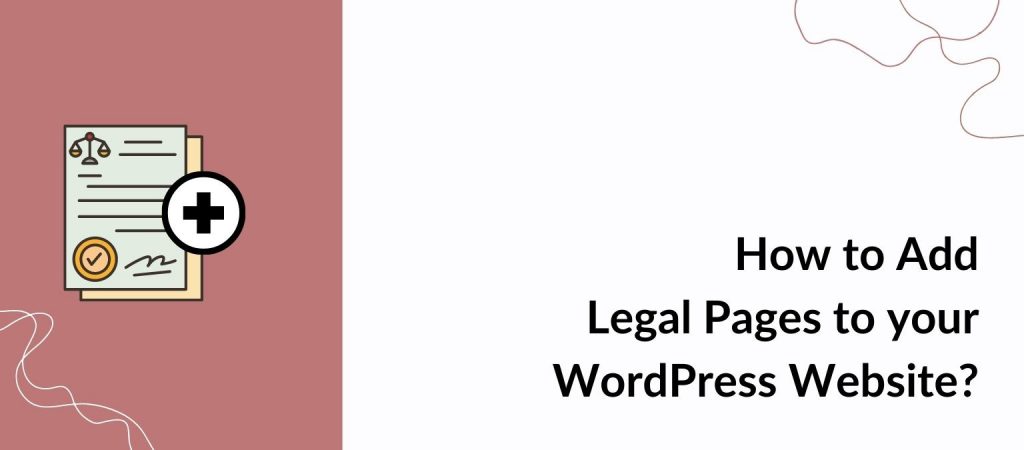
Not everyone is capable of creating legal pages for their websites. It’s pretty hard to create and add your legal pages. You might need the help of a lawyer. Hiring a lawyer might not work for you if you’re on a tight budget.
In such a case, we recommend using WP Legal Pages: a free privacy policy generator for WordPress. With the pro version, you can generate free legal pages for your website and access 25+ legal page templates.
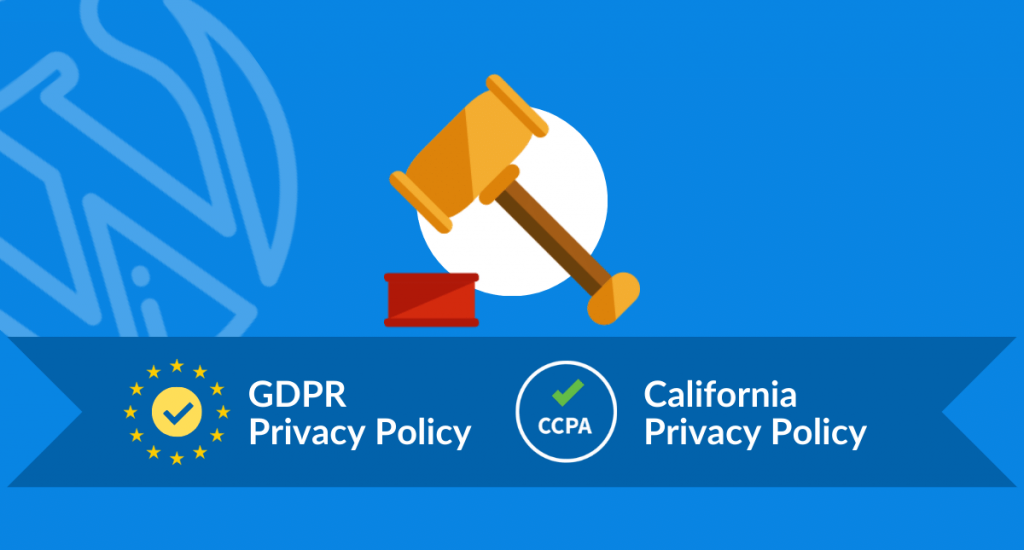
The WP Legal Pages plugin allows you to create attorney-level privacy legal pages for your website. The plugin comes with many rich features to make your site compliant with the privacy policies of different countries without any hassle. You can create legal pages for your site within a few minutes. All you need to do is to install the plugin and activate it. You can download it from the WPeka website or WordPress.org.
After you have activated the plugin, follow the steps below to create a legal template –
- Go to your WordPress dashboard
- Go to WPLegalPages – > Create Page
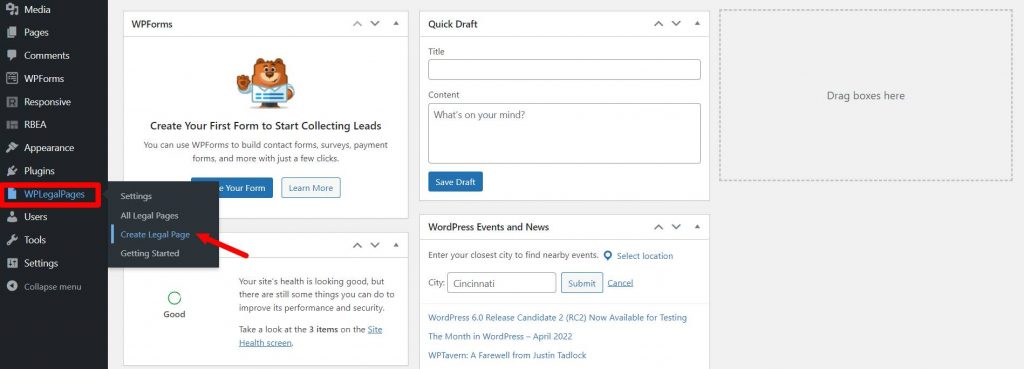
- Select the Type of website you have
- On the right side of your screen, several templates will appear
- Click on the template you need
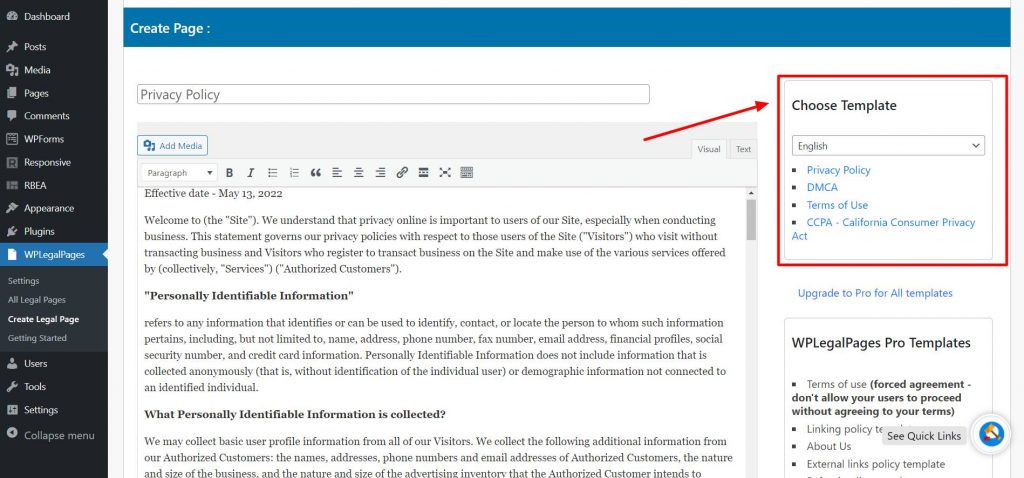
- The content of the template in your editor; you can edit it if you want
- Now click on the publish button
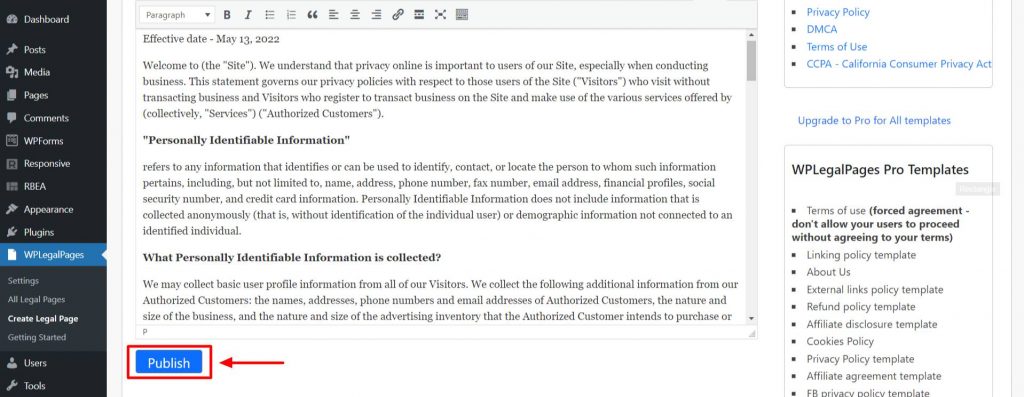
- Your legal template will be added to your website
What Could be the Legal Issues for Not Having Them?
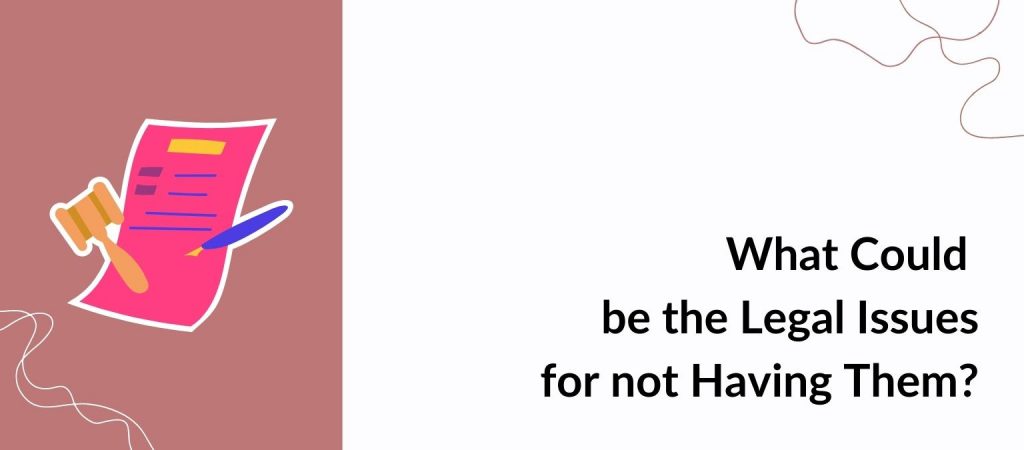
A small legal trouble is enough to destroy your entire business. While the legal battle will affect your time, energy, and resources, spreading the rumor will affect your reputation so badly that it will become difficult for you to survive. You must publish the required legal documents on your site to avoid these troubles.
The major legal issues a website often faces are –
Theft or fraud
Theft or fraud is a serious Cuber issue today. The most common problems are Identity theft, internet time theft, and intellectual property. Identity theft is doing something under some other person’s name. Internet time theft is nothing but unauthorized internet use for a long time. Intellectual property theft is the use of someone else’s intellectual property. You have to be very serious about the security of your website to avoid it. That is why the terms and conditions of use must be mentioned clearly.
Trespass
Trespass is a cybercrime in most countries worldwide. It simply means unauthorized use of a website. If somebody accesses your users’ personal data, it is unfortunate. Your privacy policy should make it clear to visitors that their data is safe.
Vandalism
Vandalism occurs when someone changes the content of a website without your approval. There are different reasons for website vandalism, the most common being hacking. You must ensure that your website is protected from hackers.
Harassment
Harassment can be of many types. Some comments made by one person can harass another. If users are allowed to post on your site, some content can also harass somebody. Your terms and conditions should be clearly defined to avoid this problem.
Copyright infringement
Lastly, Copyright infringement refers to the use of copyright-protected material without permission. The right of use and production remains with the copyright holder. Individuals and organizations can register for copyright for their works for protection. Other parties can be permitted to use those works through licensing. Hence, you need to give clear notice of copyrights on the website.
Did you know? The Australian privacy act is much older than many other popular privacy laws of the world, including GDPR and CCPA. Learn more in our dedicated article on the Australian Privacy Policy Principles.
Conclusion
We have tried our best to offer you a solution for the issues you are facing regarding creating legal pages on your website. Go through the step-by-step guide, and you can publish legal documents on your website using the pre-designed legal templates offered by WP legal pages in a few minutes.
If you liked the article, please share it on Facebook and Twitter. If you have any questions, let us know. We will get back to you soon. Subscribe to our YouTube channel for our video tutorials.
